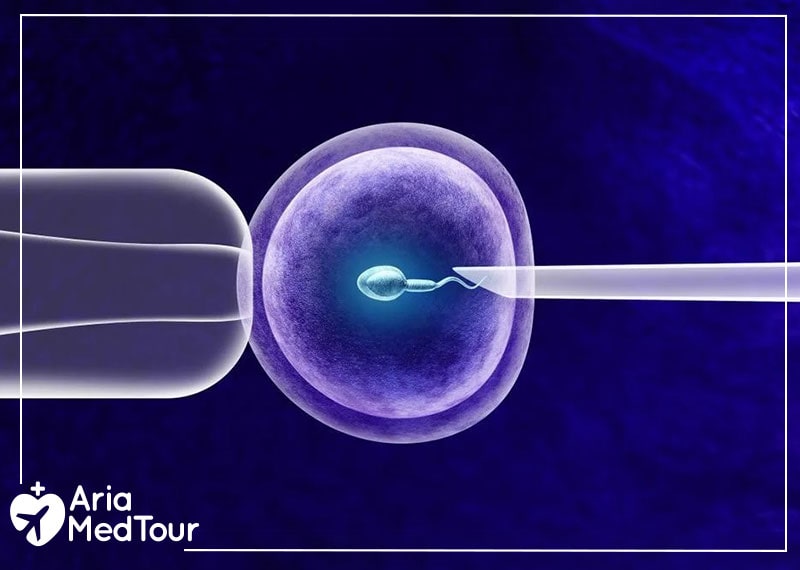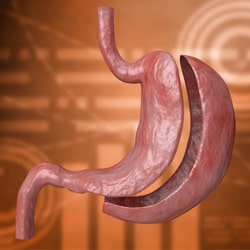In vitro fertilization (IVF) is a method to treat infertility. It’s an effective assisted reproductive technology that increases the chance of child conception for people suffering from fertility issues and helps them have a baby. As its name suggests, IVF is a series of complex procedures which includes fertilizing the egg in the lab.
Yet to put it simply, the method could be summarized in three main steps:
- Extracting or retrieving matured eggs from the ovaries. The egg could belong to you or could be donated by a known or unknown donor
- Fertilizing the egg by sperm in the lab (in vitro). The sperm could belong to the male partner or again could be donated by a third party.
- The fertilized egg/eggs which are now called embryo/embryos will be transferred to a uterus (yours or a third party’s/gestational carrier)
While IVF could be the best treatment option for many infertile couples, it can’t help all kinds of infertility. Usually, couples who suffer from infertility due to the female partner’s blocked fallopian tubes or removal, polycystic ovarian syndrome (PCOS), irregular ovulation cycles, or endometriosis or the male partner’s factor infertility are among those who can get help from IVF, as well as those with unexplained infertility.
Therefore, a thorough consultation with your specialist who examines your fertility history and its causes is the first step to deciding if this is a good choice for you.
Selection Criteria
As already mentioned, while IVF could be very beneficial to many people and bring them happiness, it can’t help some others, even if their infertility cause falls into the categories usually addressed through IVF. Counting on IVF before making sure you’re a good candidate and have a good chance may only bring about false hope and a broken heart.
This is why before undergoing any screening tests and examinations you need to assess if you are eligible and match the selection criteria.
- Many specialists would not offer IVF treatment for women above 46. Considering the fact that the chance of success decreases as the age rises above 40. While the treatment can be carried out for women over 40 after proper consultation and making sure the ovaries are working fine, it may not be appropriate for women in their late 40s.
- The treatment may not be a perfect option for women with BMI above 35 either. As they won’t have a good chance of getting pregnant. Moreover, the risk of complications during pregnancy, namely miscarriage, is also higher in women with a BMI of 35 or above.
A Quick Review of Suggested Tests Before IVF
- Check for infectious diseases
- Chlamydia screening
- Check for genetic diseases
- Semen evaluation
- Immunity to rubella
- Ovarian reserve testing
- Tubal patency test
- Prolactin test
- Cervical Smear
- Lupus anticoagulant
- Anticardiolipin antibody screening
- B2 Glycoprotein antibody screening
- TSH
- Mock embryo transfer
How to Prepare for an IVF Cycle
After making sure that getting pregnant, especially through assisted reproductive technologies, namely IVF procedure, can be a good option for you considering the infertility reason and the selection criteria, you need to go through some screening tests to see if you (intended parents) are both suitable for this procedure. To make sure you have a good chance at IVF, your body is prepared to start the procedure and able to grow healthy embryos with decreased risk of transferring diseases to the baby, and also to help the doctor decide which medications and regimens are required to prepare you better for the procedure and increase your success chance, you need to go through multiple tests before starting the IVF procedure. Remember if there’s a donor or surrogate involved they also need to go through the tests.
Screening Tests
There are some general tests for both men and women like regular blood tests for screening diseases and some specific to each partner to check the quality and quantity of eggs and sperm as well as the uterus condition. Based on the results of these tests, more examinations may be required or suggested.
Tests for Both Partners Before IVF
- Check for Infectious Diseases
To decrease the risk of complications resulting from infectious diseases, you and your partner should undergo some blood tests to screen for infectious diseases such as HIV, hepatitis B, C, syphilis, and varicella. They can all pose risk to the growing fetus and bring about complications during pregnancy. If you test positive, extra testing, treatments, and counseling may be required before you decide to start the IVF cycle.
- Chlamydia Screening
This test is also done for both partners. However, unlike screening for other diseases, chlamydia screening is done through a urine test in the male partner and a vaginal swab for the female partner. A blood test could also help with assaying chlamydia antibodies which lets the doctor know if you have ever been infected by chlamydia. Chlamydia infection can damage the fallopian tubes.
- Check for Genetic Diseases
You may also need to check for cycle cell anemia, thalassemia, or other genetic disorders if you have a family history or you’re coming from a population where a specific disease such as cycle cell anemia is more prevalent.
Tests for Men Before IVF
There are several tests for the male partner or the sperm donor. While some may be optional tests to increase the chance of conception of a healthy embryo, semen analysis is often required to determine the shape, number, and motility of the sperm.
- Semen Evaluation
A recent semen analysis is necessary before the IVF process to assess the semen quality. However, if you’re opting for treatment with donor sperm, this test won’t be necessary for you. Sperms are investigated in terms of shape, motility, number, and concentration.
Based on the result of semen evaluation and in case of male infertility, your doctor may suggest intracytoplasmic sperm injection (ICSI). This is a procedure in which a single sperm is carefully injected into each egg using micro-manipulation tools. Digital High magnification is another option that may be suggested in which the healthiest sperm will be selected for insertion.
Tests for Women Before IVF
Women need to go through multiple tests before undertaking an IVF cycle. Some of the tests are designed for checking the quality and quantity of the egg and some are to make sure the womb is hospitable enough for the embryo. There may also be some immunity tests. Therefore, if the egg donor and the uterus owner are two different women, each may need to take their tests.
- Immunity to Rubella
The mother (surrogate) needs to take a blood test to confirm immunization against rubella. In case you test negative, you need to discuss it with your specialist to help you take the necessary action for immunization. Developing rubella during pregnancy can cause serious implications for the baby.
- Ovarian Reserve Testing
Ovarian reserves which indicate the number of eggs in a woman’s body can be investigated through a blood test measuring the level of some hormones, including FSH, AMH, and Estradiol. While high levels of AMH signify a higher number of eggs remaining, FSH level coordinates with fewer eggs and indicates a reduced ovarian reserve which may render IVF ineffective.
The hormone levels will help the doctors decide which drug regimens to prescribe for you to prepare you for the treatment.
- Tubal Patency Test
The tubal patency is examined through Hysterosalpingo Contrast Sonography (HyCoSy), a specialized ultrasound examination in which a contrast agent is introduced into the fallopian tubes to investigate whether they’re blocked or functional for the IVF process. A normal ultrasound or an X-ray can not help with the proper evaluation of the uterus’s condition.
- Prolactin Test
Prolactin is the hormone contributing to breast milk production high levels of which may prevent conception. Prolactin level is measured through a blood test. Based on the prolactin level, your doctor decides which drug regimen suits your condition.
- Cervical Smear
A recent cervical smear test is also required before undergoing IVF.
- Tests to determine the risk of miscarriage
The investigation is done through a blood test. While not all the reasons for miscarriage and problems during pregnancy can be assessed before undergoing treatment, there are some tests that could help assess common causes of miscarriage. A blood test to investigate lupus anticoagulant, anticardiolipin antibody, B2 glycoprotein antibody, and TSH is usually suggested for this purpose. Their results can help the doctor figure out if you have an increased risk of miscarriage or other complications during pregnancy. In case of any abnormalities in this regard, your doctor can help you start a treatment to reduce such risks.
- Mock Embryo Transfer
Mock embryo transfer is an optional test your doctor may suggest to get a better idea of how your uterus may act as the actual procedure is carried out and to find the best route for transferring the embryo.


























I’m planning to start IVF soon and I want to make sure I’m fully prepared. Could you explain what an IVF test usually includes? I’ve heard there are several blood tests before IVF, but I’m not sure which ones are essential. Also, what are the most important tests before IVF and steps involved in proper pre IVF preparation?
That’s a great question and an important step toward a successful cycle. An IVF test typically includes a combination of hormonal evaluations, ultrasound scans, and genetic or infectious screenings. Common blood tests before IVF assess hormone levels such as AMH, FSH, LH, estrogen, and thyroid function. Other tests before IVF may include semen analysis, uterine imaging, and infectious disease screening. Proper pre IVF preparation also involves lifestyle adjustments, taking prescribed supplements, and closely following your fertility specialist’s guidance to optimize your chances of success.